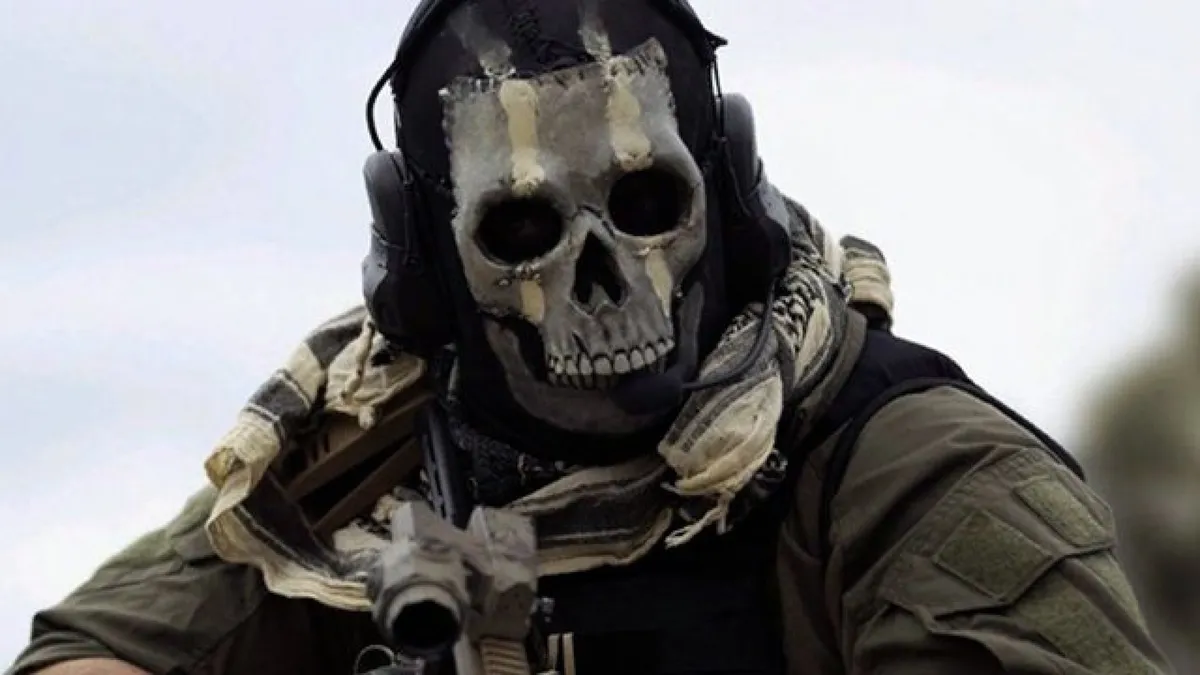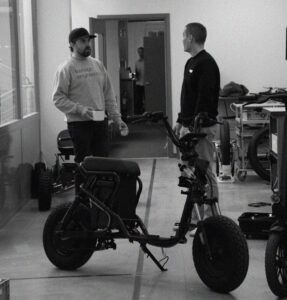When “American Horror Story” (AHS) first aired in 2011, it quickly established itself as a groundbreaking anthology series, blending horror with social commentary, camp, and the unexpected. At the heart of its success were Sarah Paulson and Evan Peters, two actors who not only became synonymous with the show’s identity but also set a high bar for performance quality. Their portrayals across multiple seasons showcased their versatility, transforming them into horror icons in their own right.
However, as the show continued, moving through its ups and downs in storytelling and reception, both Paulson and Peters eventually stepped away from the series. Their absence was keenly felt, and subsequent seasons seemed to struggle without the strong characterizations they brought to the table. With whispers of Season 13 potentially being the final chapter of “American Horror Story”, there’s a growing sentiment among fans that if Sarah Paulson and Evan Peters are to return, it should be only to help the series end on a high note, bringing the show’s decade-plus legacy full circle.
This sentiment raises an important question: Is it enough to simply bring them back for nostalgia’s sake, or should their return be symbolic, serving as a testament to the show’s end? AHS, after all, has prided itself on reinvention. To give it a fitting conclusion, the presence of Paulson and Peters should be more than a fan-service moment. It should encapsulate the themes, characters, and complex emotions that made AHS a unique cultural phenomenon.
The Centrality of Paulson and Peters in AHS’s Evolution
From the very beginning, Sarah Paulson and Evan Peters proved to be the backbone of “American Horror Story”. In “Murder House”, they set the stage with performances that were both haunting and deeply human. Paulson’s portrayal of medium Billie Dean Howard added a layer of eerie authenticity to the haunted house narrative, while Peters’ role as Tate Langdon was a masterclass in complexity—he embodied a character that was both sympathetic and terrifying, making the audience confront their own morality.
Their subsequent roles in Asylum, Coven, and Freak Show saw them tackling a range of emotions and personas, from the grotesque to the sublime. Paulson’s character arc as conjoined twins Bette and Dot Tattler in Freak Show remains one of the show’s most technically challenging and emotionally resonant performances. Similarly, Peters’ portrayal of Jimmy Darling in the same season, a man struggling to find dignity and identity within a freakish world, resonated with audiences for its raw vulnerability.
When the show shifted into more experimental territory with Hotel, Roanoke, and Cult both actors continued to redefine themselves, refusing to rest on their laurels. In Roanoke, Paulson brilliantly flipped between playing a character within a reality show and the real-life actress portraying that character, underscoring her talent for navigating AHS’s meta-narrative. Peters’ performance in Cult as the dangerous and charismatic cult leader Kai Anderson showcased his ability to embody evil in a way that was both magnetic and repellent.
By the time “Apocalypse” and 1984 aired, it was clear that the show was evolving—whether for better or worse is still a matter of debate. What wasn’t up for debate was the undeniable absence of Paulson and Peters, whose characters had, in many ways, been the emotional core of AHS. Their departure felt like a breaking of the show’s unspoken contract with its audience: to deliver character-driven horror with unparalleled intensity.
How Paulson and Peters’ Absence Impacted AHS
With Paulson and Peters taking a step back, the series began to falter in terms of cohesive storytelling and character development. While subsequent seasons like Double Feature and NYC introduced fresh faces and concepts, they often lacked the gravitas that Paulson and Peters brought. Their ability to turn even the most outrageous storylines into something compelling was a crucial ingredient in the AHS formula.
Part of what made Paulson and Peters indispensable was their commitment to finding humanity within horror. Whether playing characters that were morally ambiguous, downright monstrous, or heartbreakingly innocent, they brought a sense of gravitas that made even the most absurd plot twists feel grounded. This balance was missing in their absence, as newer seasons seemed to rely more heavily on shock value and disconnected narratives rather than character-driven horror.
The results were evident. Ratings dipped, and critical reception was lukewarm at best. Without Paulson and Peters anchoring the show, it seemed to lack the emotional throughline that had previously elevated it from mere spectacle to something more profound. Their absence wasn’t just about the loss of two talented actors; it was the loss of AHS’s ability to blend horror with heartbreak, insanity with introspection.
Why Bringing Them Back Isn’t Enough
As “American Horror Story” reaches a pivotal juncture, the potential return of Sarah Paulson and Evan Peters raises both excitement and skepticism. Would their reappearance merely be a nostalgic callback, or could it serve a deeper purpose, one that honors the show’s legacy while providing a meaningful conclusion?
To reduce their return to mere nostalgia would be to overlook what made their contributions so vital. Paulson and Peters never relied on their status as AHS stalwarts to phone in performances; they consistently pushed boundaries, both for themselves and for the show. Their presence alone was not what made AHS great; it was their ability to turn outrageous scenarios into compelling narratives, to elevate even the most grotesque and bizarre characters into something relatable.
If Season 13 truly marks the end of “American Horror Story”, then their return must transcend fan service. It should be integral to the narrative arc, bringing closure not just to their characters but to the show’s larger themes of identity, trauma, and redemption. The show has explored these ideas in myriad ways—through haunted houses, insane asylums, and apocalyptic battles. To bring back Paulson and Peters is to acknowledge that they were the vessels through which these themes were most powerfully conveyed.
Their return should be reflective, not just of where the show has been, but where it’s going. After a decade of contorted timelines, intersecting narratives, and convoluted mythologies, it would be fitting for Paulson and Peters to act as the guides through the final chapter. Whether they reprise past roles or take on new personas, their characters should serve as mirrors to the show’s history, reflecting back its triumphs and failures.
The Role of Paulson and Peters in Season 13
If AHS is to conclude with Season 13, it should do so by acknowledging the cyclical nature of its storytelling. Paulson and Peters’ return could be framed as a confrontation with the show’s own mythology. For example, revisiting characters like Cordelia Goode (Coven/Apocalypse) or Tate Langdon (Murder House) could serve as a commentary on how trauma and evil perpetuate across generations—a theme that AHS has continually explored.
Imagine a storyline where Paulson’s character—a wise, jaded medium—guides a lost soul, played by Peters, through a maze of the show’s past horrors. This journey could revisit iconic settings like the Murder House or Briarcliff Manor, not as mere callbacks, but as explorations of unresolved storylines and thematic tensions. As they traverse these haunted locales, they encounter echoes of the characters they once played, blurring the lines between actor and role, past and present, reality and fiction.
This metanarrative approach would not only be a fitting homage to AHS’s history but also a deeply personal exploration of how the show’s legacy has shaped its actors and its audience. Paulson’s character might grapple with the idea of closure and the necessity of confronting one’s own past, while Peters’ character could embody the struggle between redemption and eternal damnation.
Impression
For a show as chaotic and multifaceted as “American Horror Story”, concluding on a high note is no easy feat. Bringing back Sarah Paulson and Evan Peters for the final season would undoubtedly generate excitement, but it must be handled with care. Their return should not be a superficial attempt to recapture former glory but a deliberate choice to acknowledge their pivotal roles in the show’s narrative.
Season 13, if it is indeed the end, offers a unique opportunity for “American Horror Story” to reflect on its legacy—to tie together loose threads, confront its own mythos, and offer a sense of closure. Paulson and Peters, with their history of delivering powerful performances, are the ideal conduits for this final act. Their return should be treated as a culmination, a way to honor not just their contributions but the contributions of the show as a whole.
If American Horror Story is to end, it deserves to go out in a blaze of thematic brilliance, not a whimper of unresolved plots and superficial scares. Paulson and Peters can help the show achieve that brilliance—if their return is handled with the respect and narrative significance it warrants. After all, their stories are “American Horror Story’s” story, and they deserve to bring it to a fitting, resonant close.
No comments yet.







